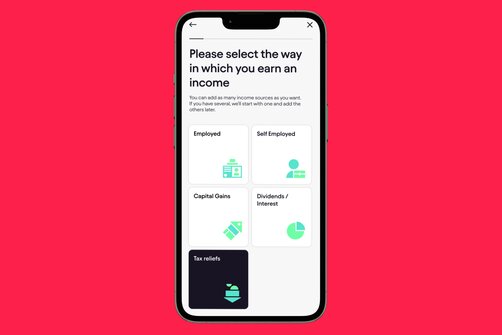Understanding HP, PCP, and Leasing

When it comes to financing a business vehicle, Hire Purchase (HP), Personal Contract Purchase (PCP), and Leasing offer distinct advantages and limitations, each catering to different needs and financial strategies.
HP allows for outright ownership after completion of payments, making it ideal for businesses that aim to retain assets over time. PCP, while similar to HP, offers lower monthly payments and an option to return or purchase the vehicle at the end. Leasing, on the other hand, is essentially a long-term rental, freeing businesses from depreciation concerns but without ownership benefits.
Pros of Hire Purchase
HP results in vehicle ownership once all payments are completed, providing much-needed asset security for businesses. It often requires a deposit, followed by fixed payments, making budgeting predictable.


Cons of Hire Purchase
The major downside of HP is the higher monthly costs compared to PCP and leasing. Despite the ownership advantage, the depreciating asset value could impact the overall financial position of the business.

A recent industry report highlights that 75% of vehicle buyers find PCP beneficial for its flexibility in dealing with uncertain future vehicle needs.PCP in Numbers

According to a recent study, businesses opting for leasing experience up to 20% savings on vehicle expenses due to depreciation and maintenance benefits.Leasing Statistics

Navigating Your Business Vehicle Financing
Choosing between HP, PCP, and Leasing ultimately depends on your financial goals and asset management strategies. Businesses prioritising asset ownership might lean towards HP, despite its higher cost. Those looking for flexible ownership paths may find PCP advantageous, with the option to own or return. Leasing typically suits companies that prioritise liquidity and wish to avoid asset depreciation issues.
In essence, understanding these finance options in the context of your business's cash flow, vehicle usage, and long-term plans will enable a more strategic approach to vehicle acquisition.
The Pie Tax Advantage
Utilising tools like the Pie Tax App can simplify tax assessments and deductions related to vehicle expenses. Pairing such tools with expert tax assistants ensures that your business maximises tax efficiency across all vehicle financing options.
As you decide between HP, PCP, and Leasing, the Pie Tax App and its experts can provide tailor-made financial insights, further enhancing your ability to make the most beneficial choice.

Key Tax Tips on Vehicle Financing

Consult tax experts to identify which vehicle expenses are allowable deductions. This knowledge can help optimise your tax returns and improve overall financial planning.Understanding Allowable Vehicle Expenses

Regularly review and document vehicle usage for accurate mileage claims. Keeping detailed records can significantly enhance your tax deductions and ensure compliance with tax regulations.Maintaining Accurate Mileage Records

Establish an organised system for tracking all vehicle-related financial transactions throughout the year. This practice aids in tax assessments and makes it easier to prepare for tax filings.Organising Financial Transactions Effectively

Fun Fact: Leasing Popularity
Did you know that leasing is now the most popular vehicle financing option in the UK for businesses, often due to its flexibility and lower initial costs?
Expert Guidance on Financing Choices

Deciding on the best vehicle financing option requires careful consideration of your specific business circumstances. Engaging with financial advisors can provide invaluable insights into cost-effective strategies and potential tax benefits dependent on your selection.
Financial experts stress the importance of evaluating the total cost of ownership, including hidden fees and long-term implications. The guidance from specialists can help tailor advice that matches your business's operational needs and financial position.

HP is a compelling choice for businesses with strong budget forecasts, allowing for long-term asset investment. It's essential to assess depreciation impacts and tax benefits globally before deciding.Choosing HP

PCP offers a flexible solution for businesses anticipating changes in vehicle requirements. Carefully consider future market conditions and resale values to make the most of PCP agreements.Opting for PCP
Summary
Selecting the right vehicle financing model can profoundly impact your business's financial health and operational efficiency. While HP ensures eventual ownership, it comes with a higher cost burden. PCP provides flexibility through ownership options and often lower initial outlay. Meanwhile, leasing appeals to businesses focusing on operational cash flow and avoiding asset depreciation.
Understanding each method's merits and aligning them with your business model is critical. Furthermore, employing resources like the Pie Tax App can enhance decision-making by precisely assessing any tax obligations associated with these financing routes. The Pie Tax App is completely free to use, find out what features are included here:
How is Pie different?
Pie is the only app for self assessment with tools for bookkeeping, your live tax figure, easy tax returns and helpful advice when you need it.
Save £168 per year vs Quickbooks, file your self assessment today for free with Pie
FREE
£69
+£59.99
£149
Quickbooks
£168
per year7 features
TaxScouts
£169
per year4 features
Accountant
£450
avg per year5 features
* Optional add on
Frequently Asked Questions
What is the difference between HP and PCP?
HP results in direct ownership once paid off, while PCP offers an option to buy or return the vehicle, often featuring lower monthly payments.
Is leasing better than buying for a business?
Leasing can be better for businesses prioritising cash flow stability and expense predictability, avoiding concerns of depreciation associated with ownership.
How can the Pie Tax App assist with vehicle financing?
Pie Tax App, along with expert tax advisors, helps maximise tax efficiency across vehicle financing decisions, ensuring informed financial strategies.
Can I deduct leasing costs from my taxes?
Yes, leasing costs can often be deducted as business expenses, but it's advisable to consult with a tax expert for specific advice.
What should I consider when choosing a vehicle financing option?
Consider your financial goals, vehicle usage, total cost of ownership, and potential tax implications when selecting the best financing option.




